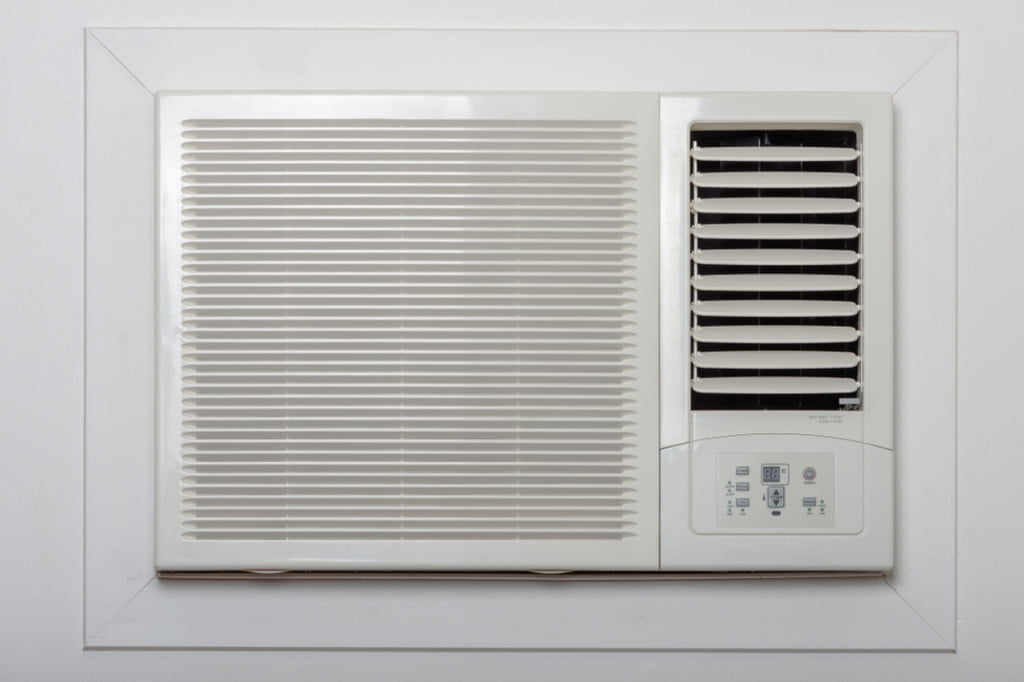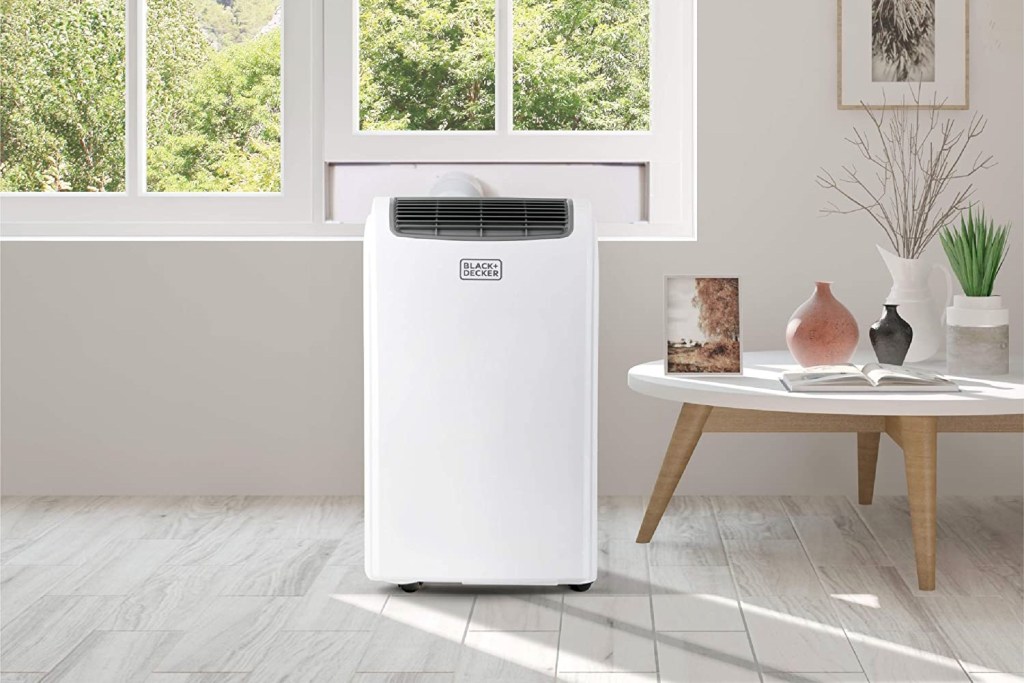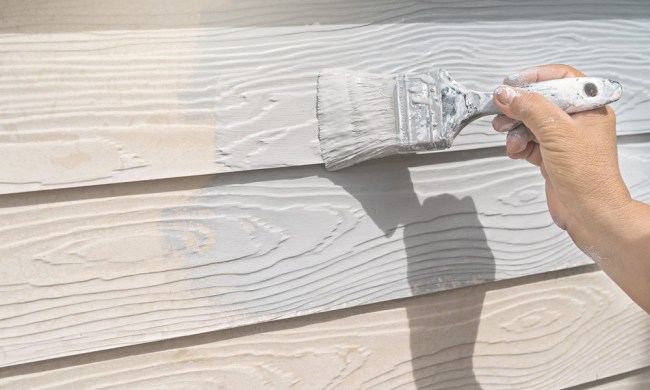It’s great to have the comfort and relief of air conditioning in your home during the hot summer months — there’s nothing like stepping from the steamy outdoors into that first blast of fresh and cool air. But what do you do when that one room of your home – a bedroom, common area or even your home office – is still toasty no matter how low the number on the thermostat is?
A handy portable AC unit could be a great cooling option for your home and even help purify and dehumidify the air for you. Depending on how much space you need to cool down, it may also help to lower your energy bill during those expensive summer months. We’ll help you understand the differences and benefits of each air conditioning method, and help you to determine if a portable air conditioner is worth the hassle for you.

What’s the difference?
These sound like they may be the same thing, but there is actually a big difference between a window AC unit and a portable AC. A window AC unit is the traditional unit that you see sticking out of windows during the summer. They can be installed at the beginning of the summer and uninstalled toward the beginning of fall.
A portable AC, however, is a compact, standalone unit that sits in your home. It looks a bit like a space heater, only it pushes out cool air instead of heat. Most of these units are on wheels and can easily be moved from room to room, provided you have an extension cord or wall outlet handy.

Which one is right for you?
Two different units, two different sets of pros and cons. How can you decide which portable cooling method is right for the room in your home that never seems to cool down?
Window air conditioners
If you don’t have central air, the traditional method of installing a window unit may be the right choice. Many models can effectively cool down a large space in just an hour or so, making them a great addition to apartments. While they’re not as effective at cooling the whole home as a central air system is, these units cost much less to run than a central air system does. They don’t take up any floor space either since they are installed in the window, unlike portable air conditioners.
One drawback to window AC units is that they tend to leave window gaps, whether large or small. Even if you plug the gaps, you still run the risk of insects getting in your home, and an increase in noise if you live on a busy street. Window units are also fairly labor-intensive to install and uninstall, meaning you probably won’t want to move it from room to room — not ideal if you have more than one hard-to-cool room in your house.
Portable air conditioners
Portable air conditioners are sometimes designed to be set up next to a window so a small exhaust tube can be vented out the window. However, this exhaust tube setup is much simpler than that of a window unit, so the portable air conditioner can be moved around from room to room very easily. The exhaust pipe doesn’t leave pieces hanging out your window, so it looks very unassuming. Additionally, many condominiums and home owners’ associations outlaw window unit use – both due to the possible dangers of falling units and aesthetic concerns – so a portable unit can serve as an alternative.
The one drawback to these portable units is that, while they’re largely versatile and can be moved from room to room, it could be a chore to vent that pipe out a window every time the unit is relocated. However, since these units are typically extremely cost-effective, getting one for each difficult-to-cool room may not be a problem.
At the end of the day, while a window AC unit is the more popular choice, portable air conditioners are a great option for cooling a small space and can be used in conjunction with your central air system to reduce energy costs overall. Whether you live in a small apartment or just need a cooling solution for your office, portable AC units will change the game this summer by ensuring even the warmest room of your home stays cool.



